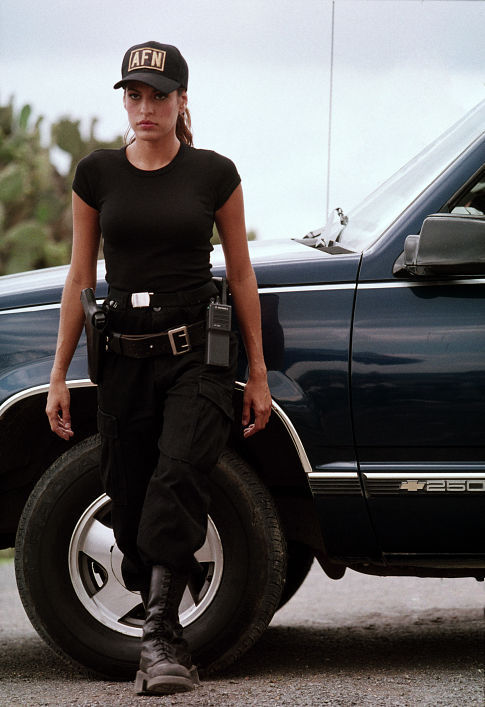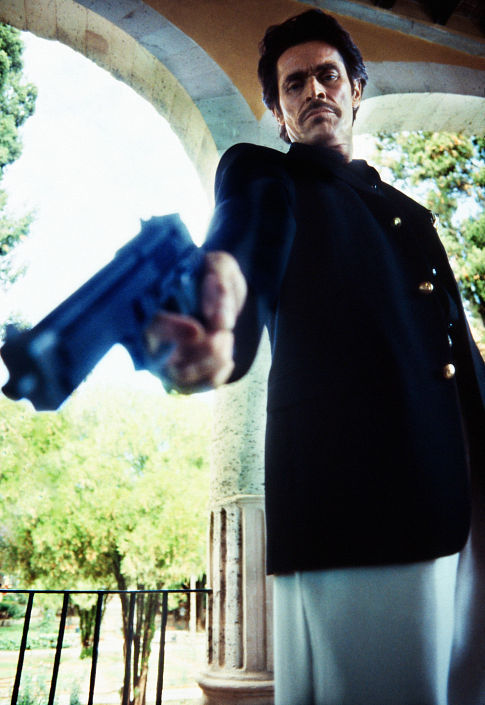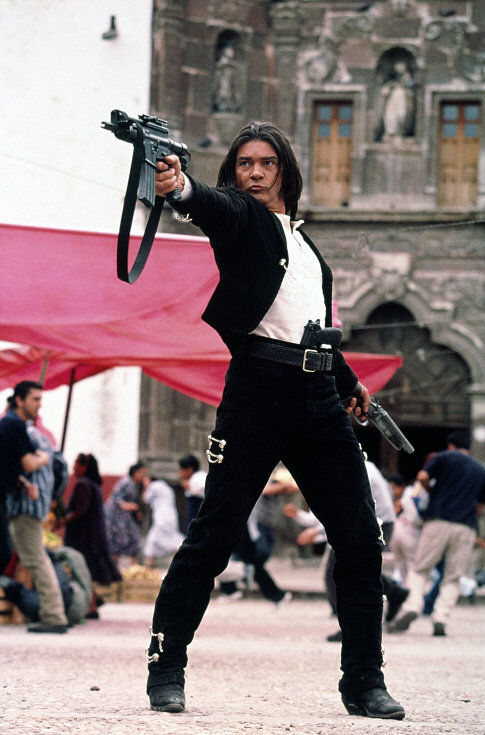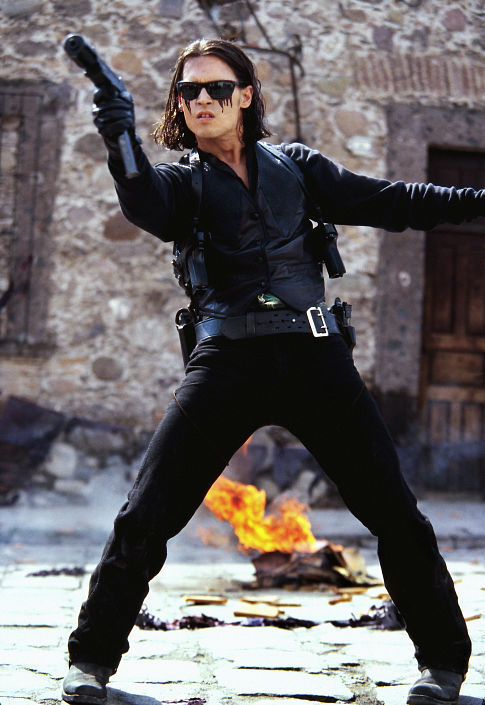

|
Once Upon A Time In Mexico
3 out of 10 |
 |
...A Mexi-CAN'T As being a writer, director, producer, composer, chief cook and bottle-washer, Robert Rodriguez is also, arguably, also America's finest cinematographer. With a deep interest and background in comics, each shot of each scene is worthy of being seen as an animated Andy Warhol, yet it is not for high-brow art of low-brow sleeze that the public pay to see movies, but for entertainment. The latest film of Robert Rodriguez is the last in his "El Mariachi" series, although it is hard to believe. Here, Antonio Banderas as "the man who wants nothing", a lethal killer with a penchant for guitars, is little more than a subplot. Part of this is through casting. Despite giving his best, Banderas quickly finds himself in Johny Depp's shadow. As Agent Sands, a CIA operative of mindnumbing cynical cold-blooded and cynical cruelty who employs El Mariachi to mess up a coup d'etat by assassinating the assassins sent by a Barillo, a drug baron (Willem Dafoe), Depp treats us to another set of his "friendly fire-side chat" speeches as only he can do. Despite being an icon that draws Hispanic talent to him like a magnet, Rodriguez seems unable to provide little for them than one-dimensional characters as a result of spreading the plot over just too many characters. In consequence, Eva Mendes, Enrique Iglesias as well as even Willem Dafoe and Mickey Rourke, all find themselves with characters simply lined up as no more than cannonfodder for the end scenes. At the start, there are a few interesting stunts, some suspense and some ace humour, mainly delivered by Johny Depp, such as, "Are you a Mexi-CAN or a Mexi-CAN'T?", yet sadly Rodriguez quickly shows his habit of losing his way. All too soon, the plot begins to drift with a confusion of various knee-jerk characters, driven by greed, fear and anger, wandering around wanting to kill each other. By the twenty minute mark, "Once Upon Mexico" has settled down to a seemingly endless loop of long periods of brooding anger, a brief but defiant macho pose in black (maybe leather) and then, a minute or two of mindless slaughter of peons played by uncredited extras. It is as if Rodriguez suffers from some form of attention deficit disorder. Keen to launch into a major project, he soon seems to tire of it, losing inspiration and just wanting to finish it with his mind elsewhere. In his defence, Rodriguez claims he wanted to create a "The Good, The Bad And The Ugly" type story, but all that results is in a muddle in the middle with an inevitable bloodbath at the end. Unlike the classic, spaghetti westerns of Clint Eastwood, the work of Rodriguez lacks any of the humanity that made sense of the violence with senseless brutality and gross-out replaces true wit and ingenuity. ...And they all died happily ever after.
Film Critic: Robert L Thompsett |


 |